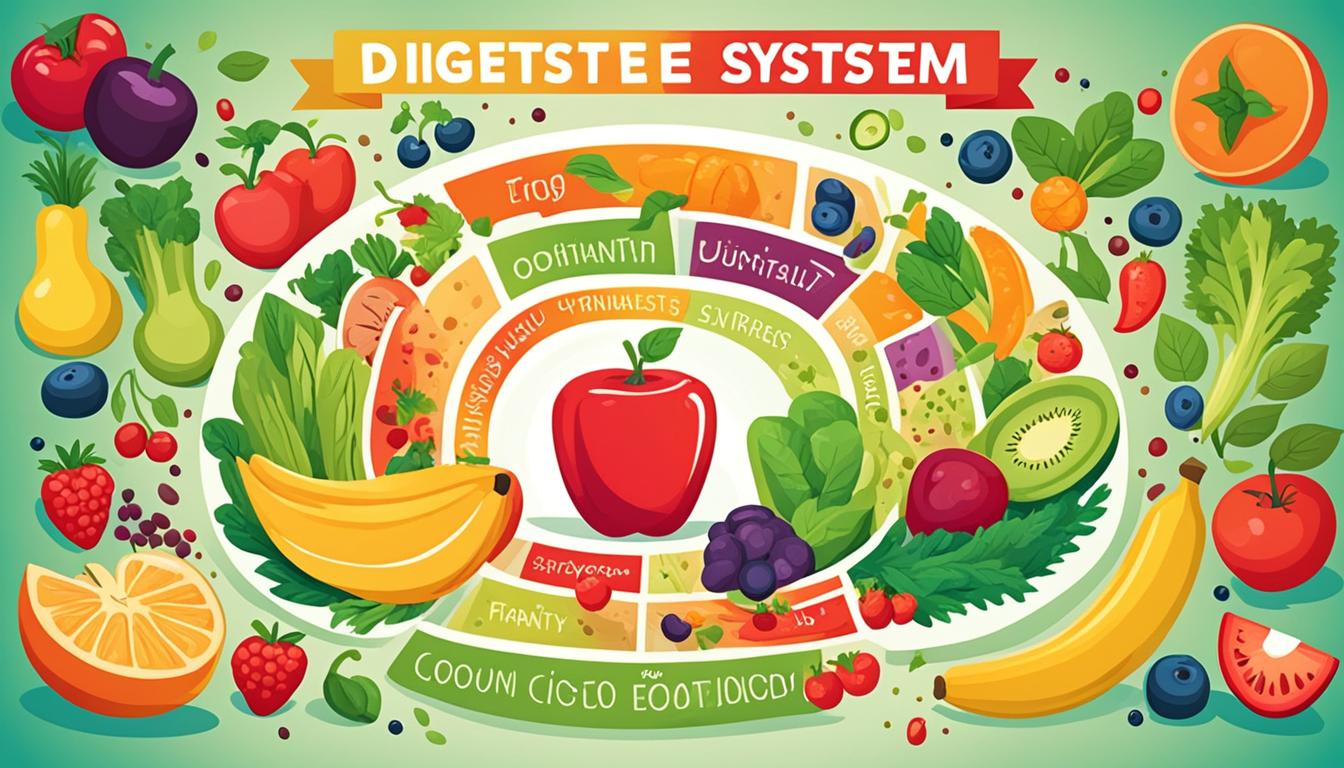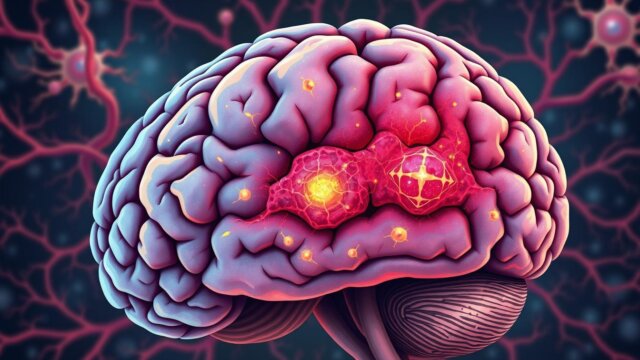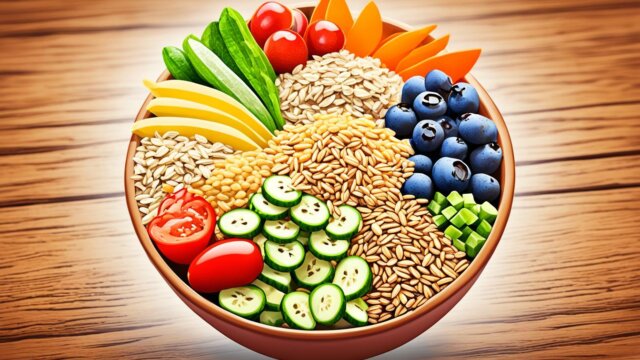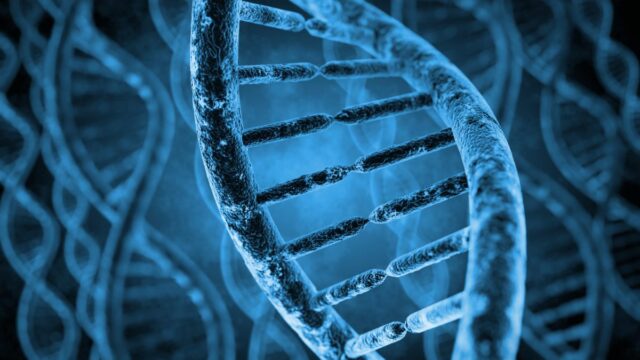FTC disclaimer: This post may contains affiliate links and we will be compensated if you click on a link and make a purchase.
Did you know that many people suffer from digestive problems? In fact, the GI tract, including the colon and rectum, is often affected. Also, colorectal cancer is a big concern in the U.S., with 130,000 new cases each year. These facts show how crucial it is to know about and deal with digestive issues.
Digestive problems can hit different parts of the GI tract. They can be functional, meaning the tract looks fine but doesn’t work right. Or they can be structural, with actual problems in the tract. Issues like constipation, IBS, hemorrhoids, acid reflux, and more can happen. Knowing what causes, shows, and fixes these problems can help keep your digestive health good.
Key Takeaways
- Digestive issues can affect various parts of the GI tract, from the mouth to the anus.
- Common digestive disorders include constipation, IBS, hemorrhoids, acid reflux, gallstones, celiac disease, and IBD.
- Functional gastrointestinal diseases are the most common issues affecting the GI tract.
- Colorectal cancer is the second most common form of cancer in the U.S., with 130,000 Americans diagnosed yearly.
- Understanding the causes, symptoms, and solutions for digestive issues can help manage your gut health.
Understanding Gastrointestinal Diseases
Digestive disorders can be split into two main types: functional and structural gastrointestinal diseases. It’s key to know the difference for right diagnosis and treatment.
Functional Gastrointestinal Diseases
These diseases affect how the gastrointestinal tract works, even if it looks normal. They can cause symptoms like constipation, IBS, nausea, gas, and bloating. Things like diet, exercise, stress, and some medicines can affect how the GI tract works.
Structural Gastrointestinal Diseases
These diseases mean the gastrointestinal tract looks different and doesn’t work right. Examples include strictures, stenosis, hemorrhoids, diverticular disease, colon polyps, colon cancer, and inflammatory bowel diseases like Crohn’s disease and ulcerative colitis. These issues often have physical changes in the GI tract.
“Distinguishing between functional and structural gastrointestinal diseases is crucial for proper diagnosis and treatment, as the underlying causes and management strategies can differ significantly.”
Knowing the differences between these digestive disorders helps doctors make better treatment plans. It also helps patients understand their condition better and take part in their care.
Common Digestive Disorders
Digestive problems are very common, affecting about one in five Americans. These include constipation, irritable bowel syndrome (IBS), hemorrhoids, and anal fissures. Doctors who focus on the stomach often treat these issues. It’s important to know about symptoms, causes, and treatments to manage and prevent problems.
Constipation means having less than three bowel movements a week for over three weeks. It can be caused by diet, medicine, or other health issues. Gastroenteritis, which causes diarrhea and vomiting, can also affect digestion.
Digestive Disorder | Prevalence |
|---|---|
Hemorrhoids | Three-quarters of individuals age 45 and older experience hemorrhoids. |
Irritable Bowel Syndrome (IBS) | Approximately 5 to 10 percent of people experience IBS, with up to 45 million people with IBS living in the United States. |
Diverticular Disease | By age 50, about half of people have diverticulosis, with about 5 percent of those with diverticula developing diverticulitis. |
Anal Fissures | Approximately 250,000 cases of anal fissures are diagnosed each year in the United States. |
Other common issues include hemorrhoids, which affect many people over 45. Anal fissures, perianal abscesses, and anal fistulas are also common. So are diverticular disease, colon polyps, colon cancer, and colitis. Knowing about these and getting medical help when needed is key to good digestion.
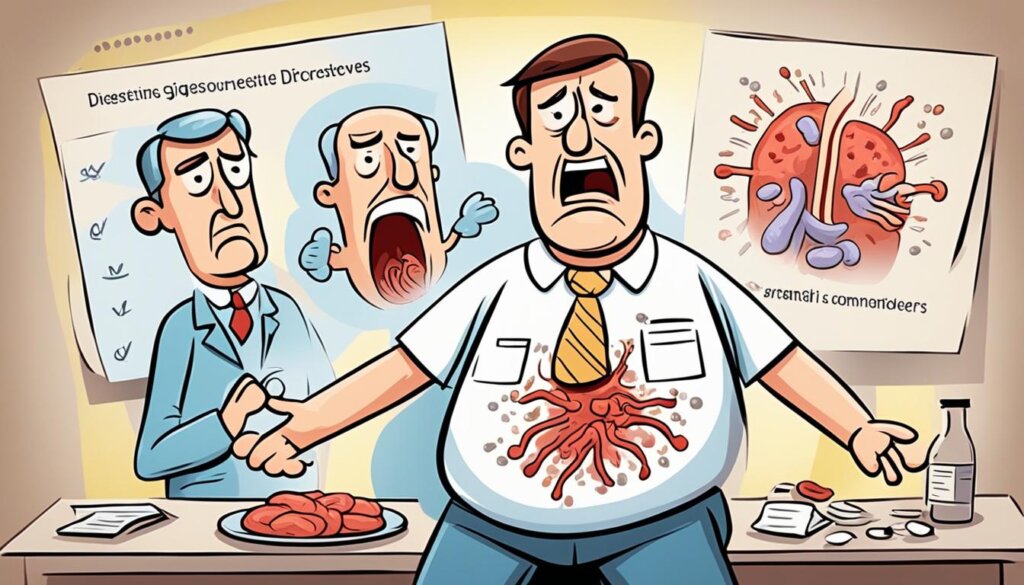
“Digestive problems are remarkably common, affecting as many as one in five Americans.”
Irritable Bowel Syndrome (IBS)
Symptoms and Causes of IBS
IBS is a common issue that affects the gut. It brings on symptoms like belly pain, changes in how often you go to the bathroom, bloating, and gas. The exact reasons for IBS are not fully known. But, it seems stress, food sensitivities, infections, and SIBO play a part.
Women with IBS might feel worse during their periods. Stressful events early in life and mental health issues like depression and anxiety are common in those with IBS. Also, problems with how the brain and gut talk to each other might be part of IBS. Bacterial infections and SIBO in the gut are linked to IBS too.
Managing IBS Through Lifestyle Changes
There’s no cure for IBS, but many find relief with diet changes, stress management, and sometimes medicine. Changing your lifestyle can help manage IBS symptoms. Some foods and stress can make it worse for many people.
- Identify and eliminate potential food triggers, such as dairy, gluten, or high-FODMAP foods.
- Practice stress-reducing activities, such as meditation, yoga, or deep breathing exercises.
- Ensure adequate fiber intake through a balanced diet or supplements.
- Maintain a regular sleep schedule and engage in regular physical activity.
By making these changes, many people with IBS can better control their symptoms and live better.
“IBS is a chronic disorder that can last for years, but the symptoms may fluctuate over time and vary among individuals.”
IBS Subtypes | Prevalence |
|---|---|
IBS-D (mostly diarrhea) | Equal |
IBS-C (mostly constipation) | Equal |
IBS-mixed (alternating loose stools and constipation) | Equal |
IBS-U (undefined subtype with variable symptoms) | Equal |
IBS is a common issue, affecting up to 15% of people in the U.S.. Women are more likely to have it than men, and most start noticing symptoms before they’re 40. IBS doesn’t increase the risk of colon cancer but can cause other problems like chronic constipation or diarrhea.
If you have ongoing digestive problems, seeing a healthcare professional is key. They can help you figure out what’s going on and how to manage it. With the right approach, many people with IBS can live better lives.
Small Intestinal Bacterial Overgrowth (SIBO)
SIBO means there are too many bacteria in the small intestine. This can cause bloating, diarrhea, and constipation. It often happens after surgery or illness slows down food movement.
Symptoms include losing appetite, stomach pain, and feeling sick. People with SIBO might also lose weight, feel bloated, and not get enough nutrients. Surgery for obesity or Crohn’s disease can make it worse.
To treat SIBO, doctors use antibiotics and fix any issues that caused it. But, SIBO can come back after antibiotics, especially if you have other health problems.
Changing what you eat can also help with SIBO. Some diets, like low-carb ones, might help. Doctors may suggest a special diet to help manage symptoms.
For some, more serious treatments are needed. A special diet without food for bacteria is one option. Some people just need to make lifestyle changes, while others need antibiotics to prevent it from coming back.
Getting the right treatment for SIBO is key to feeling better. Doctors use tests to figure out if you have SIBO.
SIBO Rates | Healthy People | People with IBS |
|---|---|---|
Range | 1% to 40% | 4% to 78% |
Observation | Higher rates in older individuals | – |
Associations | Inflammatory bowel disease (IBD), liver disorders, stomach surgery | – |
Cause | Foods don’t cause SIBO, but certain foods can worsen the condition | – |
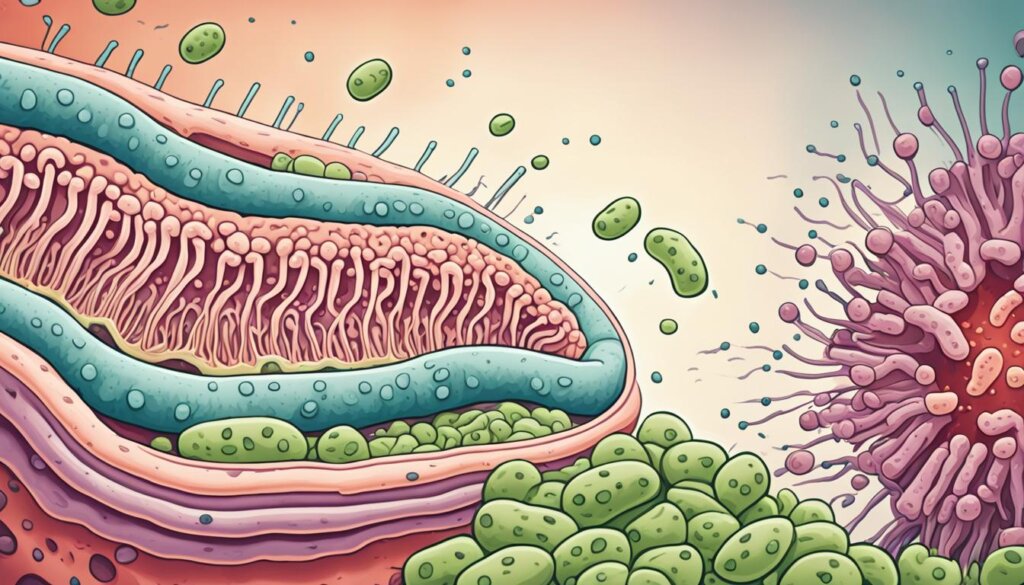
In summary, SIBO is a complex issue that needs careful treatment and a mix of approaches. Research is ongoing to find the best ways to manage SIBO and its symptoms.
Acid Reflux and Gastroesophageal Reflux Disease (GERD)
Acid reflux happens when stomach contents go back into the esophagus. This can cause a burning feeling called heartburn. If it happens a lot, it might be GERD, a serious condition. Knowing about GERD’s symptoms, risk factors, and how to manage it is key to feeling better and avoiding problems.
Symptoms and Risk Factors of GERD
GERD’s main symptoms are heartburn, bringing up food, trouble swallowing, and chest pain. Being overweight, pregnant, or taking certain medicines can make GERD more likely. Other things like hiatal hernias and slow stomach emptying can also cause GERD.
Dietary and Lifestyle Modifications for GERD
Many people can manage GERD by changing their diet and lifestyle. Stay away from foods like chocolate, fatty foods, coffee, and alcohol. Keeping a healthy weight, quitting smoking, and eating smaller meals can help too. If GERD is severe, you might need medicine or surgery.
Understanding GERD and making the right diet and lifestyle changes can help you feel better and avoid serious issues.
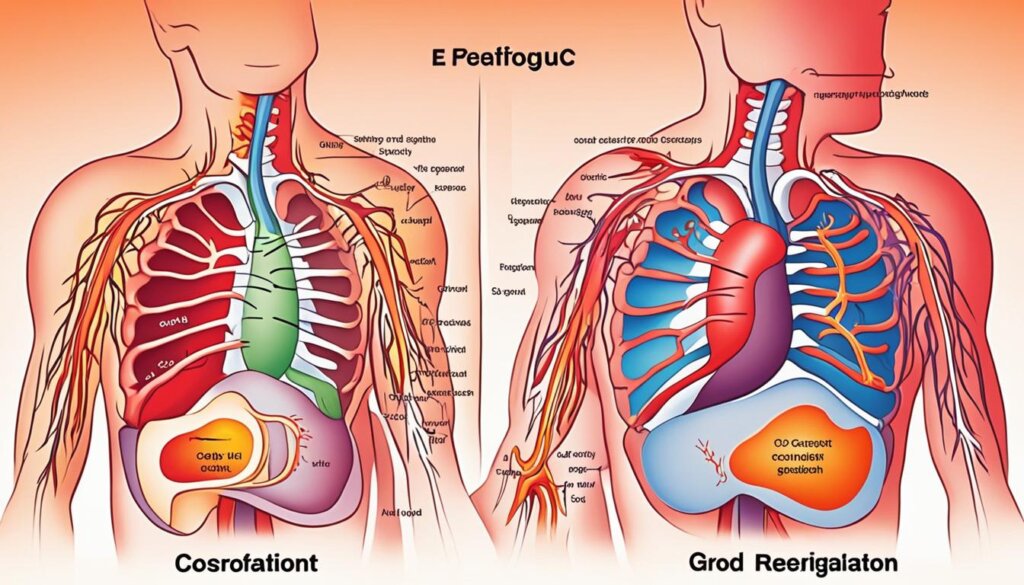
“The National Institute of Diabetes and Digestive and Kidney Diseases (NIDDK) starts and helps clinical trials on digestive diseases. Their goal is to improve prevention, detection, treatment, and quality of life.”
Gallstones and Gallbladder Diseases
Gallstones are small, hard deposits that form in the gallbladder. This sac stores and concentrates bile for digestion. Most of the time, they don’t cause symptoms. But, they can block the gallbladder’s opening, causing severe pain, jaundice, nausea, and vomiting.
People at higher risk include females, those over 40, Native Americans, and Hispanics of Mexican origin. Being overweight or obese, having a family history of gallstones, diabetes, or certain blood disorders also increases risk.
Gallstone complications can lead to inflammation, blockages, pancreatitis, and even gallbladder cancer. To avoid gallstones, eat regularly, lose weight slowly, and choose high-fiber foods. A balanced diet and exercise help too.
Surgery to remove the gallbladder is often needed for severe symptoms. About 1 to 3 percent of people with gallstones get inflammation (acute cholecystitis). Surgery to remove the gallbladder is usually done as an outpatient procedure.
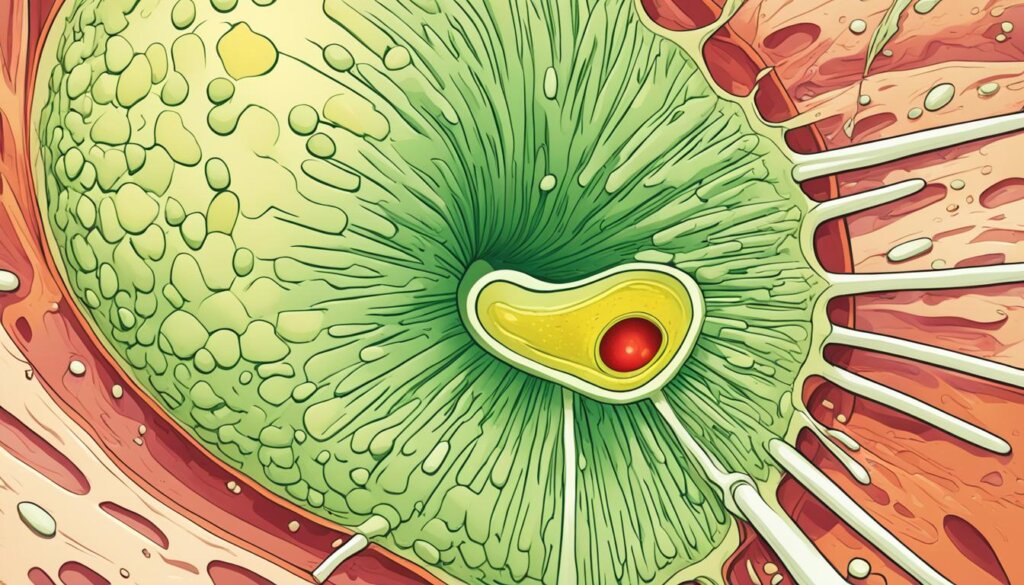
“Gallstones are one of the most common digestive health problems in the United States, affecting an estimated 20 million Americans.”
Celiac Disease and Gluten Sensitivity
Celiac disease is an autoimmune disorder. It happens when the body attacks the small intestine’s lining because of gluten. Gluten is in wheat, rye, and barley. Symptoms include diarrhea, constipation, bloating, and weight loss. Without treatment, it can cause serious issues like malnutrition and bone problems.
Symptoms and Complications of Celiac Disease
Celiac disease shows in many ways, affecting more than half of adults in ways not related to digestion. People with it may have skin issues and severe digestive problems like diarrhea and constipation. They might also feel more anxious and depressed.
Not treating celiac disease can lead to big problems. These include malnutrition and issues with the bones and nervous system. It can also raise the risk of certain cancers.
Celiac Disease Statistics | Percentage |
|---|---|
Celiac disease affects approximately 1 in every 100 people worldwide | 1% |
Estimated 75%-80% of individuals with celiac disease remain undiagnosed | 75%-80% |
Increased risk of celiac disease for individuals with a family history | N/A |
Celiac disease is more common in individuals of European descent, white individuals, those with type 1 diabetes, individuals with Down syndrome, those with other autoimmune diseases, individuals experiencing infertility, and those with irritable bowel syndrome with diarrhea | N/A |
The main way to treat celiac disease is a gluten-free diet. This helps the small intestine heal and stops more damage. About 75%-80% of people with it don’t know they have it. Those with a family history are more likely to get it. It’s also more common in certain groups, like Europeans and people with type 1 diabetes.
“Celiac disease can be a difficult condition to diagnose, as the symptoms can be varied and easily confused with other digestive disorders. Early recognition and treatment are crucial to preventing long-term complications.”
Inflammatory Bowel Diseases (IBD)
IBD are chronic conditions that cause inflammation and damage in the digestive tract. The main types are Crohn’s disease and ulcerative colitis. Most people get diagnosed before turning 30, but it can start in the 50s or 60s too. White people get IBD more often, but it’s getting more common in other groups. Having family members with it makes you more likely to get it.
Crohn’s Disease
Crohn’s disease can hit anywhere from mouth to anus. Smoking is a big risk factor you can control. It can lead to serious issues like bowel blockages, not getting enough nutrients, fistulas, and anal tears.
Ulcerative Colitis
Ulcerative colitis usually hits the rectum and colon. It can cause colon cancer, skin, eye, and joint problems, and side effects from medicines. It can also lead to toxic megacolon and a perforated colon. People with it or Crohn’s in the colon should get colon cancer screenings 8 to 10 years after diagnosis.
IBD symptoms include diarrhea, losing weight, stomach pain, and bloody stools. Doctors use medicines, diet changes, and sometimes surgery to fight inflammation and prevent problems.
Comparison | Crohn’s Disease | Ulcerative Colitis |
|---|---|---|
Affected Area | Can affect any part of the digestive tract | Primarily affects the rectum and colon |
Risk Factors | Smoking is the most significant controllable risk factor | Family history and genetic factors play a role |
Complications | Bowel obstruction, malnutrition, fistulas, anal fissures | Toxic megacolon, perforated colon |
“Inflammatory bowel diseases can be challenging to manage, but with the right treatment and lifestyle changes, many individuals are able to achieve remission and live full, active lives.”
Digestive Issues
Digestive issues can come from many things, like gas and bloating, or serious problems. Knowing what causes them, spotting the signs, and getting the right treatment are key. Many can be fixed by changing how you live. But, seeing a doctor is important for ongoing or bad symptoms to get the right care.
Irritable Bowel Syndrome (IBS) is a common issue that causes discomfort, bloating, and changes in how often you go to the bathroom. About 10 – 20% of people have IBS. It affects around 10–15% of people in the U.S., but only 5–7% get diagnosed.
Gastroesophageal Reflux Disease (GERD) is also common, hitting about 20% of people in the U.S. It shows as acid reflux and heartburn, often from what you eat and how you live.
Inflammatory Bowel Diseases (IBD) like Crohn’s disease and ulcerative colitis are serious. They cause inflammation and harm to the digestive tract. Crohn’s disease affects about 3 million in the U.S., and ulcerative colitis usually hits people in their teens to thirties.
Food intolerances and allergies can also cause digestive trouble. About one in 13 kids has a food allergy, with common ones being to cow’s milk, peanuts, eggs, wheat, soy, and tree nuts. Food intolerances happen when your body can’t handle certain foods well.
To deal with digestive issues, living a healthy life is key. This means eating well, staying active, and managing stress. For mild symptoms, over-the-counter meds like antacids can help. But for ongoing or bad issues, seeing a doctor is a must for the right care.
“Listening to your body and addressing digestive concerns promptly can help you maintain a healthy and functional digestive system.”
Understanding what causes digestive problems and getting the right help can improve your gut health and overall health.
Rare Digestive Disorders
Many people know about common digestive issues like IBS and GERD. But, there are also rare ones that can affect people. These less common disorders can really change someone’s life.
Hirschsprung’s Disease
Hirschsprung’s disease is a rare condition from birth. It makes the colon have trouble opening the internal anal sphincter. Most cases are “short-segment,” but some are “long-segment.” Rarely, the whole large intestine is affected.
Achalasia
Achalasia is another rare issue. It stops the esophagus from moving food to the stomach. This can make eating hard and cause vomiting and regurgitation.
Ménétrier Disease
Ménétrier disease makes the stomach lining grow too much. This can cause stomach pain, nausea, and vomiting. It happens when the stomach makes too many proteins that help it grow.
These rare digestive disorders can cause constipation, vomiting, and trouble swallowing. Getting medical help quickly is key for diagnosis and treatment.
“These rare digestive disorders, though less common, can still have a significant impact on a person’s quality of life and require specialized medical care.”
Conclusion
Digestive health is key to feeling good overall. It’s important to know about different stomach problems and how to handle them. Issues like irritable bowel syndrome (IBS) and acid reflux are common. But there are also serious ones like inflammatory bowel diseases (IBD) and Hirschsprung’s disease that can really affect your life.
Keeping your gut healthy starts with good habits and seeing a doctor when you need to. New research in gastroenterology helps us understand and treat stomach problems better.
Putting your digestive health first helps you make smart choices. It lets you deal with stomach issues well and boosts your health and well-being. With the right info and action, you can manage your digestive health. This way, you can live a happier, easier life.
FAQ
What are the main types of gastrointestinal diseases?
Gastrointestinal diseases are divided into two main types. Functional diseases mean the GI tract looks fine but doesn’t work right. This can cause issues like constipation and bloating. Structural diseases mean the GI tract looks bad and doesn’t work right. Examples include strictures and diverticular disease.
What are some of the most common digestive disorders?
Common digestive disorders include constipation and irritable bowel syndrome (IBS). Other issues are hemorrhoids, anal fissures, and diverticular disease. Colon cancer and colitis are also common.
What is irritable bowel syndrome (IBS) and how is it managed?
IBS is a disorder that causes belly pain and changes in bowel habits. Symptoms include bloating and gas. To manage it, people may change their diet and use stress-reducing methods. Sometimes, doctors prescribe medicine.
What is small intestinal bacterial overgrowth (SIBO) and how is it treated?
SIBO happens when there’s too much bacteria in the small intestine. It can cause bloating and diarrhea. Doctors treat it with antibiotics and help address the cause.
What are the symptoms and risk factors of gastroesophageal reflux disease (GERD)?
GERD symptoms include heartburn and trouble swallowing. Being overweight and pregnancy can increase the risk. Changing diet and sleeping with the head raised can help manage it.
What is the primary treatment for celiac disease?
The main treatment for celiac disease is a gluten-free diet. This helps the small intestine heal. Without treatment, it can lead to serious health issues.
What are the main types of inflammatory bowel diseases (IBD)?
IBD includes Crohn’s disease and ulcerative colitis. Crohn’s can affect any part of the digestive tract. Ulcerative colitis mainly affects the colon. Symptoms include diarrhea and weight loss.
What are some examples of rare digestive disorders?
Rare digestive conditions include Hirschsprung’s disease and achalasia. Ménétrier disease is another rare condition. Symptoms can be constipation, vomiting, and trouble swallowing.
